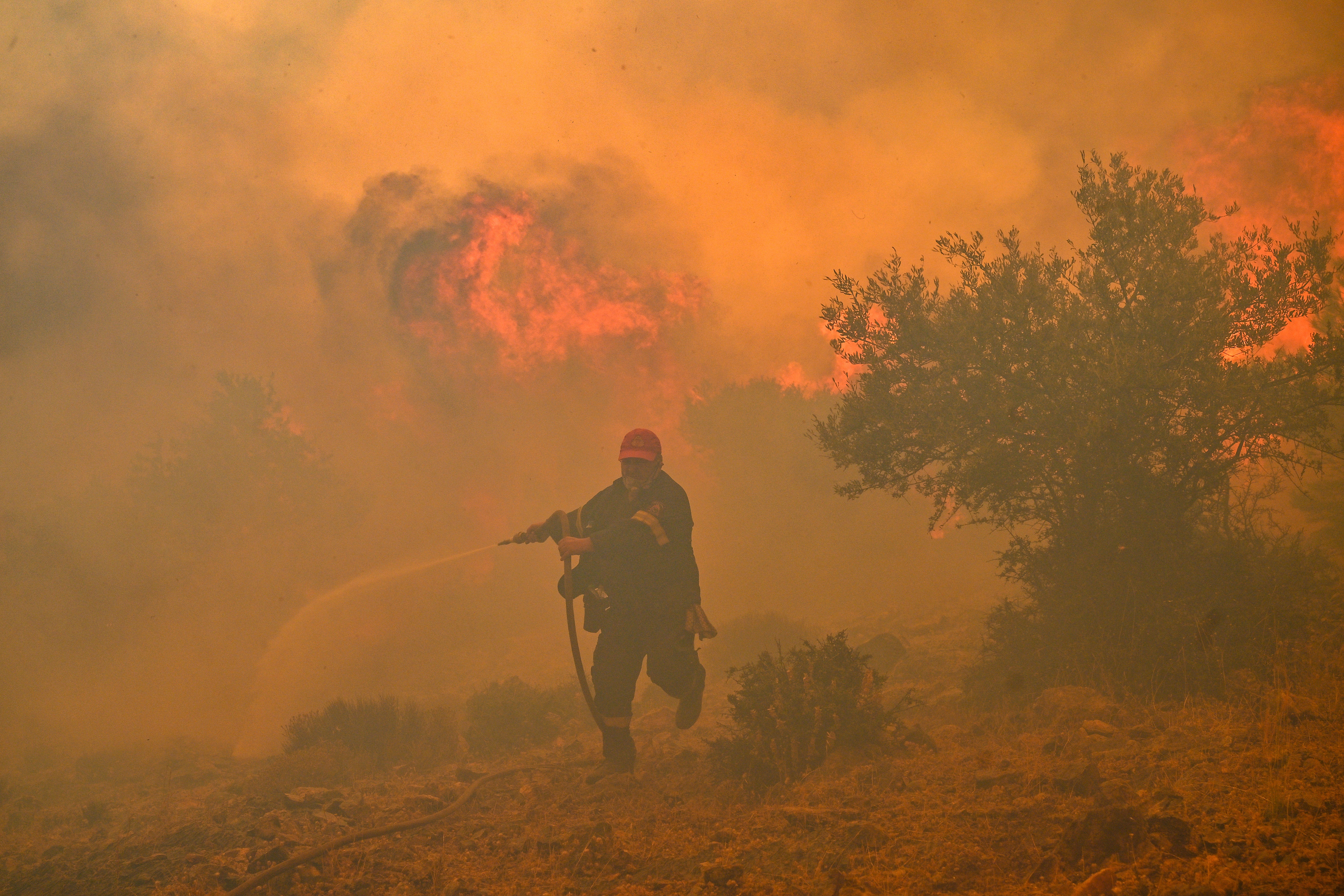When will heatwave in Europe end? New forecast shows relief in sight for countries fighting wildfires
Temperatures will dip from extremes but weather still expected to remain ‘sunny and warm’
Southern European countries suffering under a sizzling heatwave for weeks can finally hope for some respite as a new forecast reveals “subtle changes in the jet stream” that are expected to bring temperatures down.
With shattered temperature records, devastating wildfires in Greece and tragic loss of lives, people have been anxiously awaiting relief from intense heat conditions that gripped Europe this month.
The latest forecast from the UK’s Met Office offers a glimmer of hope as conditions are projected to shift slightly, indicating the weakening of the heat dome that enveloped the southern part of the continent.
Meteorologist Alex Deakin, in a deep dive analysis by the Met Office, predicted temperatures in Europe will “dip off a little bit” starting on Wednesday in Italy and gradually easing in Greece by the end of the week.
The jet stream, a narrow band of westerly winds circling the northern hemisphere, has been responsible for creating the heat dome over Europe.
But from Wednesday, this air from the west will start spreading over Italy and the jet stream will move southwards, eventually bringing temperatures down in eastern Europe as well in the next few days.
“Fast forward to Wednesday, you can see southern Italy joins in with the cooler air as well, and by the time we get to Thursday, most of Greece is cooler and by Friday, that cooler air is even pushing down across Cyprus,” he said.
“So we are seeing temperatures dropping because of that dip in the jet stream.”
Mr Deakin said while Europe will see temperatures dropping a little bit from the extremes of over 40 degrees Celsius, the weather will still remain “sunny and warm”.
Italy’s temperatures are expected to go down to the average, close to 30C, while in Greece, temperatures will come down “maybe a day later,” he said.
“So the peak in the heat across Greece is likely to be on Wednesday, when the winds are lightest and again a lot of hot, strong sunshine,” Mr Deakin said. “But we see a drop there as well.”

Mr Deakin warned that, despite the improvement in temperatures, gusty winds could exacerbate the wildfire situation in the region. However, the anticipated cooling will at least bring temperatures closer to the average, providing much-needed relief to affected areas.
“And as we can see the change, we will also see the winds gusting up as well, which isn’t gonna help the wildfire situation here.”
“But at least as I say, the temperatures will be getting back closer to average, still plenty of sunshine.”
Scientists said a combination of factors, such as a stagnant jet stream, the El Nino phenomenon and the record-shattering average global temperatures caused by the climate crisis were all responsible for the extreme heatwaves sweeping three continents.
The jet stream over Europe had been in a “stationary position” in the last few days, experts said, which meant that the weather systems were kept in a holding pattern that made heat build up.
A recent study by the World Weather Attribution (WWA) said such heatwave conditions are more common now due to the heating of the planet by 1.2C since the 1800s due to greenhouse gas emissions.
Scientists have been warning that as global average temperatures continue to rise, heatwaves in Europe are becoming more frequent and stronger.
The WWA research showed that with the current heat, Europe, which is heating faster than the global average, already has a probability of facing extreme heat like the one currently persisting, every 10 years.
Join our commenting forum
Join thought-provoking conversations, follow other Independent readers and see their replies
Comments





Bookmark popover
Removed from bookmarks